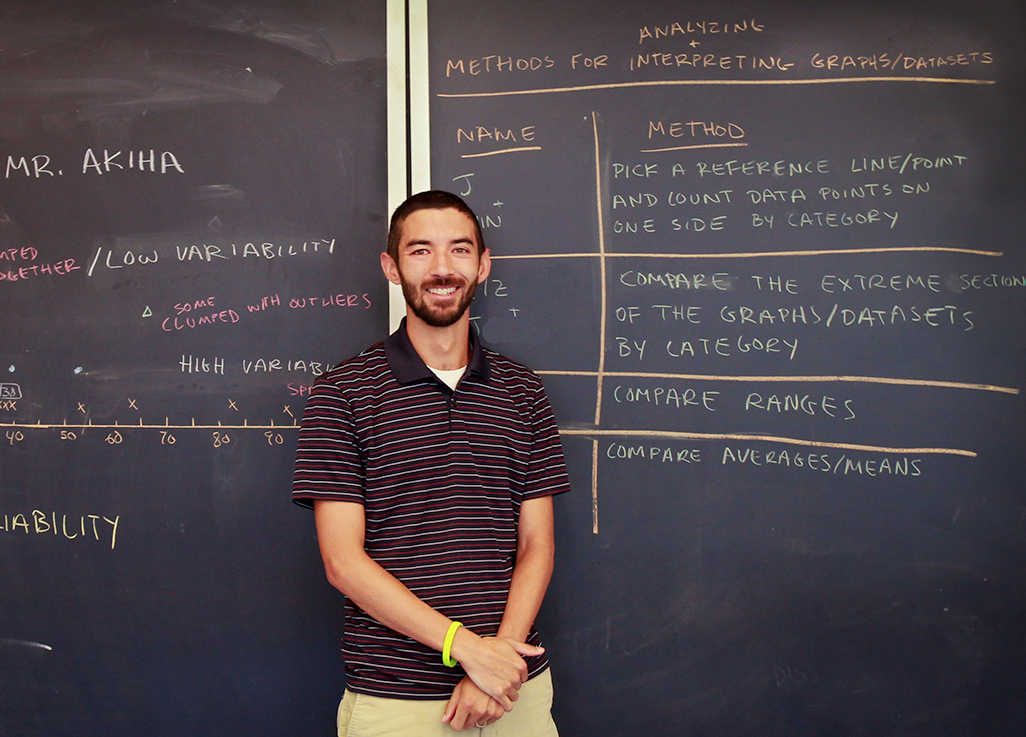
UMaine alum puts his research into practice at Old Town High School
Ken Akiha researched effective teaching styles for his thesis work at the University of Maine to determine how teachers engage their students for entire class periods.
Now, as an Earth science and computer science teacher at Old Town High School, he can apply his findings to his own teaching style.
Akiha’s research had an important goal: discover how educators can reduce the number of students leaving science, technology, engineering and math (STEM) fields as undergraduates.
“Keep students engaged from bell to bell.”
According to Akiha, who received a Master of Science in Teaching from UMaine in 2017, there is a drop in student enrollment in STEM careers at the college level, which leads to a loss of employable people for STEM careers.
In a college setting, lecture-style classes dominate introductory courses. Akiha wondered if students transitioning from the K-12 interactive-learning style were finding this method of teaching to be difficult to engage with – and causing students to leave STEM majors.
His thesis suggested educators increase collaboration between middle school, high school and university instructors as well as create long-term professional development that promotes more active learning for STEM classrooms.
The RiSE Center implements this strategy with the NSF Teaching Fellowship Program – a Robert Noyce Scholarship Program of the National Science Foundation. Akiha is a fellow of the program, which supports teachers by providing STEM educators courses and extensions such as financial support and mentoring. He witnesses his research benefiting his community, first-hand.
From Earth Science to Computer Science
Akiha has now developed another passion: educate more students in computer science locally, nationally and beyond. When he realized the lack of opportunity for students to learn computer science at his school, he added the specialty to his resume. Now, there is an Advanced Placement (AP) course developed under his guidance for Old Town HS students — which he hopes will grow and become offered in schools throughout the state.
He encourages other teachers to learn how to teach computer science, and hopes more computer science experts will enter the field as teachers. Akiha dreams of this program expanding statewide – retaining jobs in the industry here in Maine.
Akiha hopes the cultural issue of tending to see STEM careers as only for “geniuses” or “geeks” will soon be a thing of the past and more students will seek out these careers – and stay in them.
Female students represent nearly 50 percent of the enrollment in his AP course this fall – something Akiha says is gratifying.
“Losing STEM careers really hits home for me,” said Akiha “So, I’m really proud of this program.”
With his research and the support of programs such as the RiSE Center’s NOYCE fellowship, perhaps more students in Maine – and beyond — will stay engaged from kindergarten through college.
Media Contact: Christel Peters 207.581.3571
More on the RiSE Center is online.
